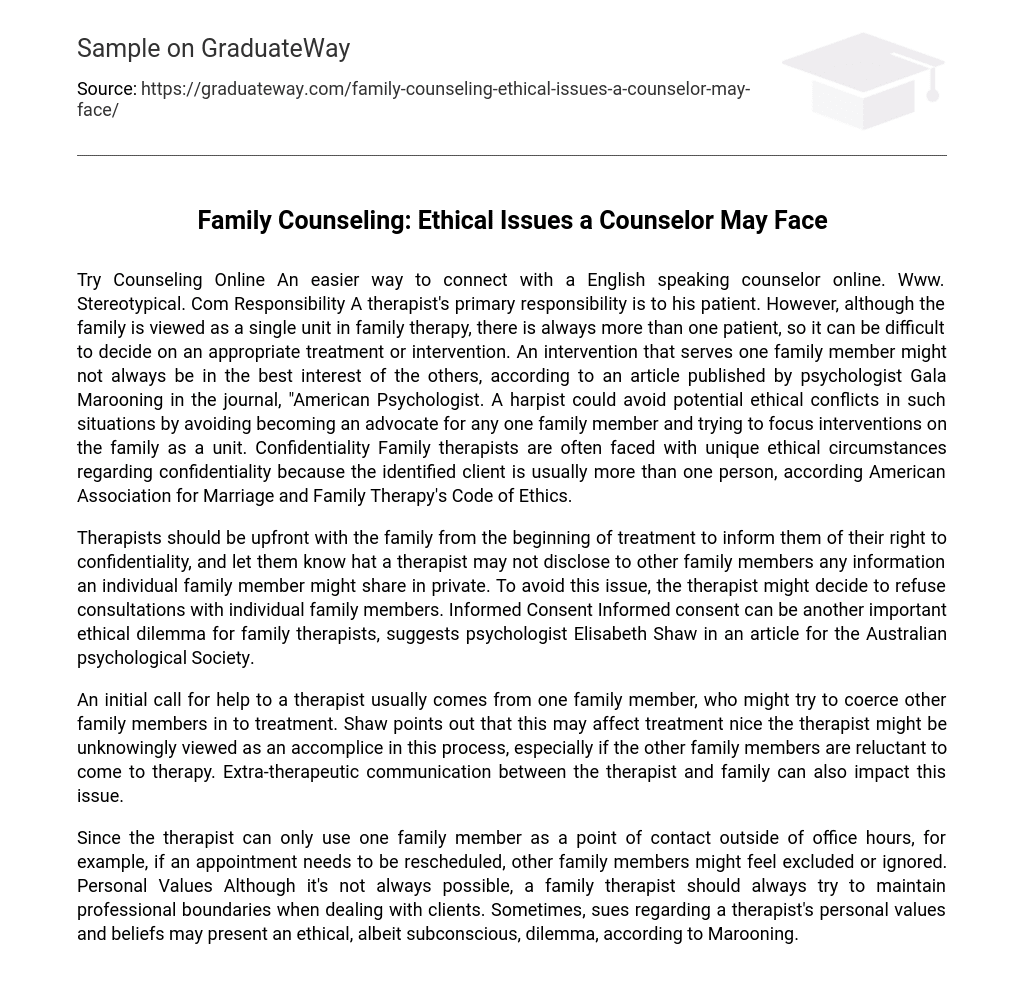Try Counseling Online An easier way to connect with a English speaking counselor online. Www. Stereotypical. Com Responsibility A therapist’s primary responsibility is to his patient. However, although the family is viewed as a single unit in family therapy, there is always more than one patient, so it can be difficult to decide on an appropriate treatment or intervention. An intervention that serves one family member might not always be in the best interest of the others, according to an article published by psychologist Gala Marooning in the journal, “American Psychologist. A harpist could avoid potential ethical conflicts in such situations by avoiding becoming an advocate for any one family member and trying to focus interventions on the family as a unit. Confidentiality Family therapists are often faced with unique ethical circumstances regarding confidentiality because the identified client is usually more than one person, according American Association for Marriage and Family Therapy’s Code of Ethics.
Therapists should be upfront with the family from the beginning of treatment to inform them of their right to confidentiality, and let them know hat a therapist may not disclose to other family members any information an individual family member might share in private. To avoid this issue, the therapist might decide to refuse consultations with individual family members. Informed Consent Informed consent can be another important ethical dilemma for family therapists, suggests psychologist Elisabeth Shaw in an article for the Australian psychological Society.
An initial call for help to a therapist usually comes from one family member, who might try to coerce other family members in to treatment. Shaw points out that this may affect treatment nice the therapist might be unknowingly viewed as an accomplice in this process, especially if the other family members are reluctant to come to therapy. Extra-therapeutic communication between the therapist and family can also impact this issue.
Since the therapist can only use one family member as a point of contact outside of office hours, for example, if an appointment needs to be rescheduled, other family members might feel excluded or ignored. Personal Values Although it’s not always possible, a family therapist should always try to maintain professional boundaries when dealing with clients. Sometimes, sues regarding a therapist’s personal values and beliefs may present an ethical, albeit subconscious, dilemma, according to Marooning.





